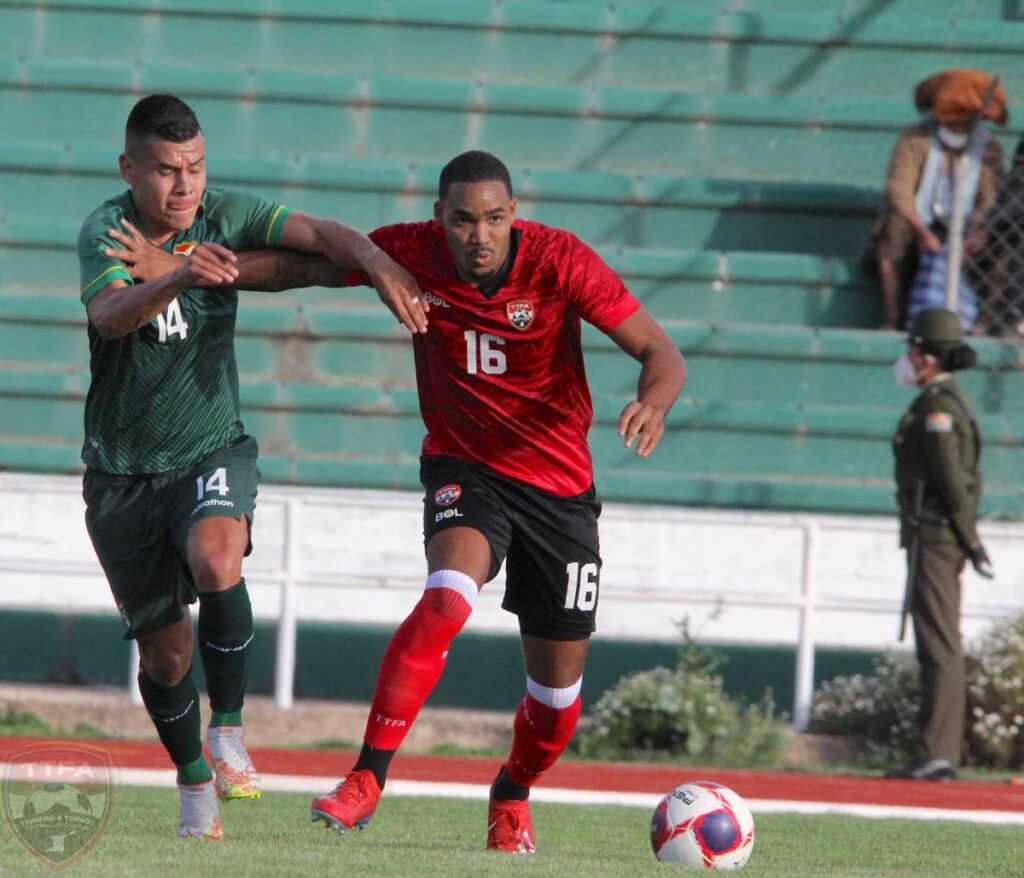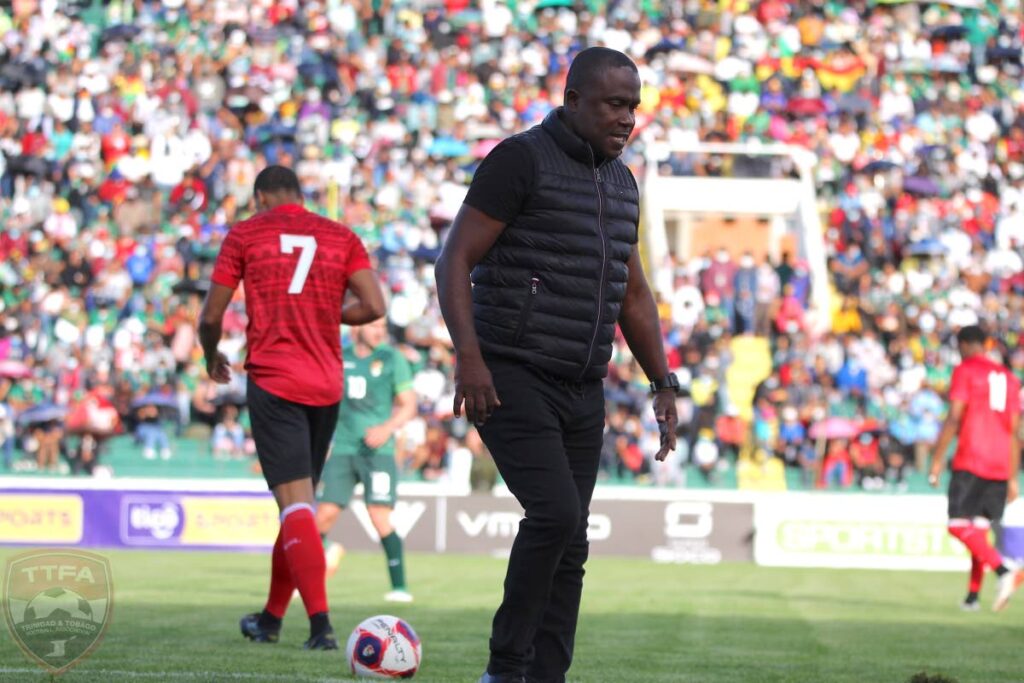Eve: Trinidad and Tobago football 'losing oxygen' on and off the field

TRINIDAD AND Tobago men's football team players found it difficult to breathe at the high-altitude Estadio Olimpico Patria in Sucre against hosts Bolivia on Friday, plus a number of players suffered from lack of match fitness from almost two years of inactivity on the domestic circuit.
These two elements, coach Angus Eve said, were key in TT’s 5-0 international friendly loss to Bolivia.
So low was the air pressure for the visiting team, two oxygen tanks were provided during their training sessions, in the dressing room and along the sidelines for emergency use.
Goalkeeping coach Clayton Ince was even forced to head back to the dressing room for oxygen while doing pre-game warm-up drills with goalkeepers Marvin Phillip and Adrian Foncette.
Similarly, TT government’s continued ban on local football competitions, because of covid19, also played a key role in the squad producing a mediocre performance. The unavailability of local competitive football is directly hampering the national team’s performance, Eve said.
“It was difficult to execute the game plan. We had a full data analyst of what Bolivia has done in the last three matches, the way they attack. We prepared for that. What we did not prepare for was players losing oxygen as much as (they did), and as fast as they were,” he said.
When asked if the prohibition of domestic competition, since March 2020, is having a trickle-down effect on individual player performance, particularly locally-based players, Eve said the continued ban is having a “massive” effect on the team.
“A national team is not a club team and is not supposed to train week-in, week-out to get players fit, and probably have a match once every month, which is when usually the (international) windows are.
“You’re supposed to have competitive club football playing so the guys can get and build their match fitness there and then you select them based on what you see them do in those environments.
“We have to go on recollection of players and what players would have done two year ago (for team selection),” Eve added.
Eve, who is TT’s most capped player (117 internationals), said it was “unfortunate” that provisions were made to host some ICC Under-19 Cricket World Cup matches here, while several local sportsmen and women remain inactive.

He said the stadium in Bolivia was filled to capacity for Friday’s match and fans “followed the normal protocols that anywhere else in the world is following”.
“We (TT) seem to be the only society (that) does not want football and contact sport to be played. It’s affecting the society at large. We recently had Under-20 trials and parents were sending out their Under-13 children; that’s how desperate parents were to get their kids back playing.
“We have school going on with the same kids, same age group, some vaccinated and some not. So with development of sport, we need the kids to be back on the pitch playing competitive matches and we as coaches go out and look for them.
“I could never replicate a match environment in a training session. Training is more predictable whereas in a match, you have to solve problems and these kids haven’t been solving problems for the past two years,” Eve said.
On his team’s performance, Eve was generally disappointed. He was without the likes of several top players, because the match was held outside of FIFA’s official international window, and opted to give some inexperienced players a chance to compete at the senior level.
“We wanted to give young players the opportunity to play but at the end of the day we wanted to give a better performance of ourselves. It’s well documented that the altitude gave us a lot of issues. But from the result standpoint we weren’t happy with that.
“We are a work-in progress. This is a different group of players. We invited a lot of young players into this group to get an opportunity. For the most part, they have pitted themselves well in a very difficult environment.
“But the guys went out and gave their best. I know that people are watching the five (goals) and I’m really disappointed for the guys and the country, 5-0 is always 5-0, but it’s really difficult for the guys out there,” he said.
The national coach however, praised the hospitality and professionalism shown to the team by the Bolivian Football Federation, which according to him, is “chalk and cheese” to what the team receives in TT.
He said pandemic challenges partnered with the TT Football Association’s inability to sustain and run itself with transparency, makes the local football situation an uphill climb for players, staff and administrators.
“Nobody knew covid19 would have been around and the TTFA would have been in such turmoil for the last couple of years. I thought when the new association came in that things would have been a lot smoother, but it seems it has gotten worse as times has gone by.
“Not just the football association, but also as a whole. Our nation seems not really interested in sport unless a result is achieved,” he closed.


Comments
"Eve: Trinidad and Tobago football ‘losing oxygen’ on and off the field"